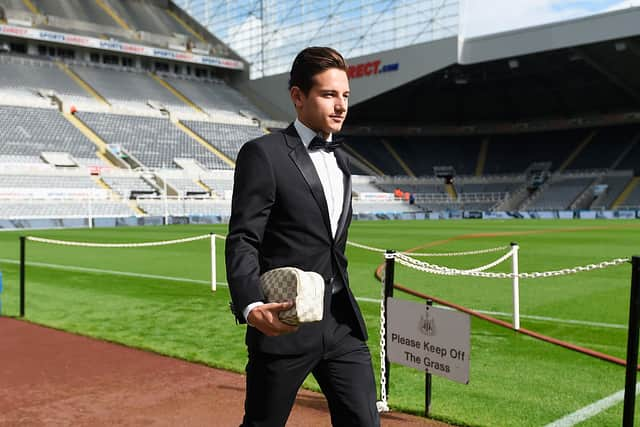Florian Thauvin has spoken openly about his short and disappointing spell at Newcastle United, admitting that joining the club was a mistake he realised only after leaving. The French winger arrived on Tyneside in the summer of 2015 with high expectations and a reputation as one of Ligue 1’s most exciting young players.
Newcastle paid around £15 million to bring him from Marseille, and in return sent Remy Cabella back to France as part of the deal. At the time, the move was seen as a major success for the club, especially as former chief scout Graham Carr had spent years tracking Thauvin’s progress.
Despite the excitement that surrounded his arrival, Thauvin’s time at Newcastle quickly turned sour. He made an impressive first impression when he scored and provided three assists against Northampton Town in the League Cup during his home debut.
Many thought that performance was a sign of things to come, but it ended up being the highlight of a spell that lasted only a few months. As results declined and the team struggled, Thauvin found himself out of form, out of confidence and out of favour.
One moment that stands out from his brief time in England was when Newcastle legend Alan Shearer criticised him on live television. Thauvin had arrived at St James’ Park wearing a tuxedo, something Shearer felt showed a lack of seriousness at a time when the club was fighting for stability.
Speaking on Match of the Day after a loss to Watford, Shearer didn’t hold back, saying that the outfit might have been amusing once but wasn’t appropriate when the team was under pressure. That comment became symbolic of how out of place Thauvin seemed in the Premier League.
By January 2016, only four months after he signed, Newcastle sent him back to Marseille on loan. The team went on to be relegated that season, despite bringing in Rafa Benitez for the final eight games.
Benitez agreed to stay and lead the club in the Championship and even expressed a desire to keep Thauvin for the promotion push. Thauvin said he completed much of pre-season with Benitez, who saw potential in him and believed he could adapt, but circumstances at Marseille forced another move.
The French club’s president at the time, Vincent Labrune, had pressured him to leave initially because the club needed the transfer fee for financial reasons. Thauvin revealed that he felt pushed out, saying he was told the club would collapse if he didn’t accept Newcastle’s offer.
Looking back, he admits the decision was not made for football reasons, and that he should not have been placed in a situation where leaving was the only option. He also explained that fans and critics often forget about the context behind such transfers.
Thauvin insisted that it wasn’t simply a matter of failing to adapt to English football. He felt that the team’s style of play, the tactical demands and the general environment didn’t suit him. In some matches, he was even used as a central striker, a position he never naturally played.
Despite his struggles, he maintains that the problem wasn’t his ability but rather the circumstances that made it almost impossible for him to settle.
He also revealed how close he came to joining Lazio to work under Marcelo Bielsa. The Argentine coach wanted him, and Thauvin said he would have gone to Italy if Bielsa had confirmed his arrival.
However, Bielsa never took the job, and without him, Thauvin chose to return to Marseille, where he felt at home and where his career was able to recover.
Back in France, Thauvin rebuilt his reputation, hitting double figures in goals and assists and earning a call-up to France’s 2018 World Cup-winning squad. He continued performing at a high level until an injury kept him out for the entire 2020/21 season.
After leaving Marseille in 2021, he had spells in Mexico with Tigres and in Italy with Udinese before returning to France in the summer to join RC Lens.
Years later, Thauvin sees his time at Newcastle not with bitterness but with a clear understanding that it simply wasn’t the right move. He believes his story shows how complex football careers can be, and how a player’s success often depends on timing, environment and decisions made under pressure.

